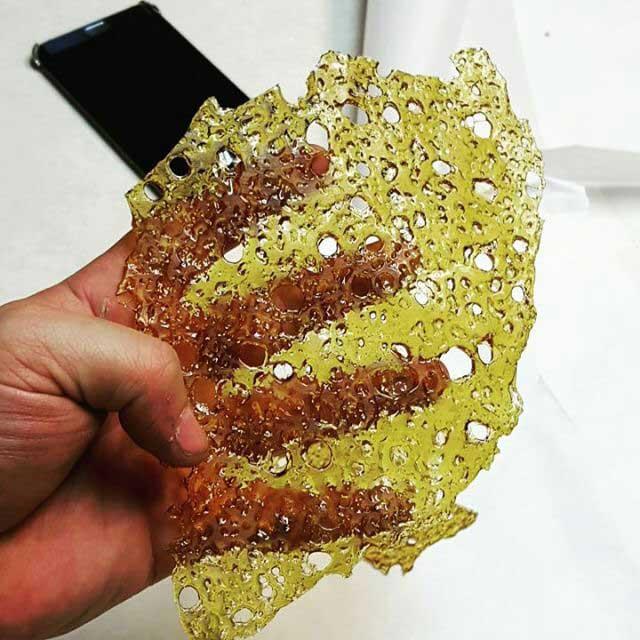In the ever-evolving world of cannabis,the quest for potency and purity has led enthusiasts and connoisseurs alike to a dazzling array of concentrates. Among the most popular are shatter and rosin, each with its own unique characteristics, extraction methods, and fan base. As the cannabis community continues to grow, so does the curiosity surrounding these two prominent concentrates.In this article, we’ll delve into the intricacies of shatter and rosin, examining their properties, production techniques, and the experiences they deliver. Whether you’re a seasoned dabber or a curious newcomer, join us as we uncover the distinctions and similarities between these two standout forms of cannabis concentrate, guiding you toward a more informed choice in your cannabis journey.
Understanding the Essence of Cannabis Concentrates
Cannabis concentrates have emerged as an intriguing aspect of the cannabis landscape, offering enthusiasts a higher potency and a more concentrated experience. These products are the result of advanced extraction techniques designed to isolate and elevate the primary cannabinoids and terpenes found in the cannabis plant. Among the various types of concentrates, shatter and rosin distinguish themselves by their extraction methods and overall characteristics, wich can greatly influence user preference and application.
Shatter is created thru the use of solvents, typically butane or propane, to extract cannabinoids and terpenes from the plant material. This process results in a brittle,glass-like texture that ‘shatters’ when broken apart. On the other hand, rosin is produced using a solventless technique, were heat and pressure are applied to the cannabis flower or hash, allowing the resin to ooze out. This method is often preferred for its safety and purity, making it a popular choice among health-conscious consumers. To further clarify, here’s a speedy comparison:
| Feature | Shatter | Rosin |
|---|---|---|
| Extraction method | Solvent-based | Solventless (Heat & Pressure) |
| Texture | Brittle, glass-like | Sticky, sap-like |
| flavor Profile | Can vary, less terpene preservation | Full, rich terpene flavor |
| Health Considerations | Potential residual solvents | Safer, natural process |
Ultimately, involves recognizing the nuanced differences in their production methods, physical properties, and effects. Each concentrate offers a unique experience for users,shaped by individual preferences and wellness goals. As the market continues to evolve, the gratitude for both shatter and rosin remains notable, with each providing distinct benefits that cater to various cannabis aficionados.
The Distillation Process: How Shatter and Rosin Are Made
The creation of cannabis concentrates like shatter and rosin involves distinct processes that yield different textures, flavors, and potency. Shatter is typically made through a method called solvent extraction, which employs solvents like butane or propane to strip the cannabinoids and terpenes from the plant material. during this process, the plant is subjected to low temperatures and high pressure, resulting in a glass-like structure as the final product cools and hardens.The lift-off stage,where the solvent is carefully evaporated,is crucial,as any residual solvent can affect both the safety and quality of the concentrate.
On the other hand, rosin represents a solventless approach to cannabis extraction, emphasizing purity and natural flavors. The rosin process utilizes heat and pressure to extract the desired compounds from cannabis flowers or hash. By applying intense pressure to the combined materials while applying heat, the essential oils are forced out, creating a sticky, waxy substance. This method not only preserves most of the terpenes and cannabinoids but is also considered safer, making rosin a popular choice among health-conscious consumers. The simplicity of using just heat and pressure appeals to those who value organic methods.
Both methods yield high-potency products, but the differences can affect your experience. below is a comparison table highlighting the key aspects of shatter and rosin:
| Aspect | Shatter | Rosin |
|---|---|---|
| Extraction Method | Solvent-based | Solventless |
| Texture | Glass-like, brittle | Waxy or sticky |
| pain Relief | High potency | High potency with natural flavor |
| Preservation of Terpenes | Some loss due to solvents | High retention |
Flavor Profiles and Terpene Diversity in Shatter and Rosin
Both shatter and rosin boast unique flavor profiles that are deeply influenced by their terpene composition. Terpenes, the aromatic compounds found in cannabis, play a crucial role in not only the scent but also the taste experience of these concentrates. The extraction methods used also significantly affect the preservation and prominence of these compounds, leading to rich and diverse flavor profiles that can entice any connoisseur. For instance, shatter, known for its glass-like consistency, typically retains a higher concentration of terpenes thanks to its solvent-based extraction process.This frequently enough results in vibrant flavors that can encompass sweet, citrusy, herbal, and earthy notes, depending on the strain used.
In contrast, rosin is celebrated for its natural extraction method that uses heat and pressure, allowing for terpenes to express themselves in a different, yet equally enticing, manner. With rosin,the flavors frequently enough reflect a more robust depiction of the raw cannabis plant. Users may experience a broader array of flavors that are sometimes described as having a fresh, organic character.Additionally, as rosin is produced from both flower and hash, the terpene diversity can originate from multiple cannabis varieties, creating a symphony of taste that captures the essence of the plants involved.
| Concentrate Type | Flavor Characteristics | Common Terpenes |
|---|---|---|
| Shatter |
|
|
| rosin |
|
|
Potency Showdown: Comparing THC Levels and Effects
When it comes to the potency of cannabis concentrates, THC levels reign supreme in the discussion. Both shatter and rosin present potent options for consumers, yet they do so through different extraction processes that can affect their overall experience. Shatter typically boasts higher THC levels, often hitting the 80-90% range, due to its butane extraction method.This high potency frequently leads to intense and immediate psychoactive effects,making shatter a favored choice among seasoned users seeking a powerful hit. However, the very process that elevates its THC concentration can also result in a flavor profile that may not appeal to everyone.
On the other hand, rosin, extracted using heat and pressure, may not consistently match shatter in THC levels but compensates with a more complex array of cannabinoids and terpenes. The absence of solvents in rosin enhances its appeal, as it preserves the plant’s natural essence, often leading to a more flavorful and aromatic experience.Many enthusiasts appreciate the rich, full-spectrum effect that rosin delivers, as it can result in a more balanced high. Users report feelings of euphoria alongside relaxation, making it suitable for both recreational and medicinal purposes.
To truly grasp the differences in potency and effects, it can be useful to compare them side by side:
| Feature | shatter | Rosin |
|---|---|---|
| extraction Method | Butane extraction | Heat and pressure |
| Typical THC Level | 80-90% | 60-80% |
| Flavor Profile | Less natural flavor | Rich and terpene-rich |
| Effect Type | Intense and immediate | Balanced and euphoric |
Health and Safety Considerations in Concentrate Consumption
When it comes to consuming cannabis concentrates, especially forms like shatter and rosin, users should be mindful of various health and safety factors. Both products are potent, but differences in their production processes can influence their safety profiles. Understanding the source of your concentrate is crucial; while rosin is solvent-free and made through heat and pressure, shatter often involves solvents which can leave residual chemicals if not processed correctly.It’s essential to verify the purity and production methods of the concentrates you choose.
Another significant aspect to consider is the dosage.Concentrates are much stronger than conventional cannabis flower, meaning a little goes a long way. Beginners should start with a small amount to gauge their tolerance and avoid overwhelming effects. It’s also wise to refrain from sharing tools or dabbing equipment with others to prevent cross-contamination which can lead to infections or illnesses. A clear understanding of your own body and its reactions can help in navigating the intense experience that concentrates can provide.
Storage and handling also play a significant role in the safety of concentrate consumption. Concentrates should be stored in cool, dark places to maintain their quality and potency. Use appropriate containers, like silicone or glass, that do not react with the concentrate and ensure that they’re kept out of reach of children and pets. Additionally, employing proper dabbing techniques and using specialized equipment designed for high temperatures can minimize risks such as burns or respiratory issues.
Choosing the Right Concentrate for Your Experience
When it comes to selecting a cannabis concentrate, understanding your desired experience is key. Both shatter and rosin offer unique effects and flavors, tailored to suit different preferences. Shatter, known for its glass-like openness and high potency, tends to provide a stronger, more immediate high. Its distinct consistency frequently enough leads to a rich flavor profile that many enthusiasts appreciate.Conversely, rosin, a solventless extract, delivers a more natural extraction process, preserving the terpene profile of the cannabis strain. This can result in a smoother, more flavorful experience, appealing to those who prioritize taste and purity.
consider your consumption method and individual tolerance when choosing between these concentrates. Shatter is frequently enough used with dab rigs or vapor pens, making it ideal for experienced users familiar with high-THC products. Conversely, rosin can be more versatile, easily added to joints or bowls for a flavor boost without overwhelming potency. Depending on your method of consumption, the choice between these concentrates can significantly influence the intensity of your experience and the flavors you encounter.
Lastly, take into account factors such as strain selection and personal goals for the session. If you’re seeking pain relief or relaxation,certain strains of rosin might be your best bet,as they often retain more medicinal benefits.However, if you aim for a lively party or social setting, the quick and intense high of shatter can elevate the atmosphere. Make sure to explore different options and perhaps keep a journal of your experiences to discover what works best for you!
Final Thoughts
As we draw the curtains on our exploration of shatter and rosin, it becomes clear that both of these cannabis concentrates hold unique allure and appeal for enthusiasts and novices alike. Shatter, with its crystalline clarity and potent punch, promises a fast-acting experience that captivates the senses. In contrast, rosin, born from the marriage of heat and pressure, embodies the artisanal spirit of cannabis, offering a solventless option that resonates with those seeking purity and flavor.
Ultimately, the choice between shatter and rosin comes down to personal preference, desired effects, and values around production methods. Whether you gravitate towards the sharp clarity of shatter or the full-spectrum delight of rosin, both concentrates invite you to savor the intricate world of cannabis. As you embark on your journey through these remarkable extractions, remember that each dab is an possibility to discover the nuances of the plant and the art of its conversion. So, fire up your rig, engage your senses, and enjoy the unique adventure that awaits with every inhalation.

